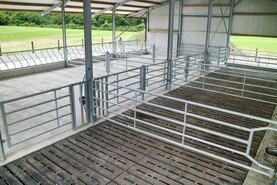Imports of agri-food products into Ireland increased by 3.8% to €3.85bn for the first six months of 2015 when compared with the same period last year, according to the latest statistics from the Central Statistics Office (CSO).
However, while the value of imports increased during the first half of the year, the volumes of products imported actually declined by 3%, suggesting the increase in the value of goods imported is due to currency movement.
With the value of the euro weakening against sterling over the last year, imports from Britain, our largest trading partner, have become far more expensive.
Data
The data provided by the CSO shows some interesting things. Firstly, the amount of animal feed imported by Irish merchants and farmers up to the end of June declined by more than 11% to just under 1.3m tonnes. This is likely due to the excellent year of grass growth in 2014, when an abundance of fodder was saved.
The value of dairy produce imported into Ireland declined by almost 8% to €398m.
Imports of fruit and vegetables, which account for the largest proportion of our food imports (15%), increased by more than 4% to €557m while imports of prepared food increased by 12% to €225m.
Imports of poultry increased by more than 10% to €215m, reflecting the large amount of produce from Northern Ireland-based Moy Park on the shelves of many of the Irish multiples.
Considering the majority of our live cattle imports come from Northern Ireland and the UK, it is unsurprising to see the value of such falling by more than 7% in the first half of the year to €62m. Other major food imports include €341m of drinks and beverages, €475m of cereals and cereal preparations, €242m of coffee, tea, cocoa etc, and €184m of sugar-based products.
Trading partners
Britain remains our largest trading partner, accounting for almost 40% of agri-food imports into Ireland or €1.5bn. Major imports from Britain include cereals, fruit and vegetables, dairy products, beverages, tea and coffee.
Most of the rest of Irish agri-food imports come from the Netherlands (€401m), Northern Ireland (€280), Germany (€250m) and France (€230m).






 This is a subscriber-only article
This is a subscriber-only article









SHARING OPTIONS: